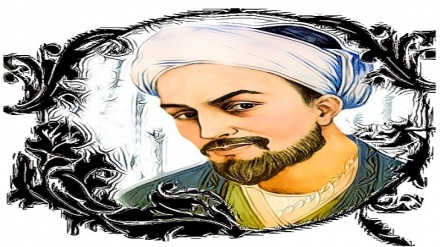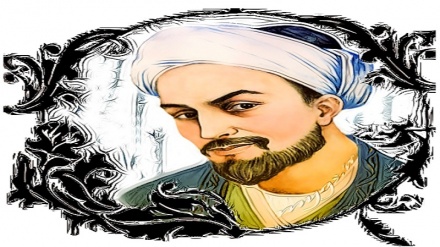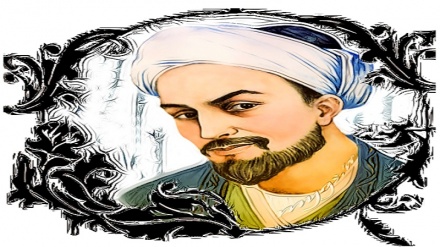Iranian notables, sources of global honor (158)
Today, we discuss the life of the well-known preacher and mystic, Baha Ed-Din Valad Mohammad ibn Hussein Khatibi, popularly known as Baha Valad "Soltan al-Ulema".
Baha Valad was one of the famed and acclaimed mystics and preachers of the region of Khorasan throughout the 6th and 7th Centuries AH, and the father of Jalal Ed-Din Molavai, the well-established Iranian poet and mystic. Baha Valad was also the son of Hussein ibn Ahmad Khatibi, who according to researcher, Aflaki, was one of the virtuous figures of his era. Baha Valad's family lived in the city of Balkh.
According to the report of the elder son of Molana Jalal Ed-Din Molavi, Soltan Valad, in his book, "Valad-Nameh", Baha Valad has earned the title of Soltan al-Ulema from the Prophet of Islam, Mohammad (Blessings of God upon him and his progeny). The book Valad-Nameh notes that the Prophet of Islam granted the title of Soltan al-Ulema to Baha Valad, in a dream that all of the Ulema of city of Balkh had in one night. When they woke up, they approached Baha Valad to honor him.
Baha Valad, in his signature book, has mentioned that at the time of authoring this book he was 51 years old. In accordance with this valid date, it can be said that he was born into a virtuous and well-known family in the year 1151 AD in Balkh, which was one of the important cities of Greater Khorasan. In a sign of loyalty to the background of his ancestors, he promoted the sacred religion of Islam and became a Mufti. Throughout his lifetime, he attached significant importance to his character as a religious scholar, refusing to stay in monasteries and insisting on residing in schools throughout his journeys. Nonetheless, signs of mysticism are evident in his registered sermons, which prove that he was also a mystic. Based on the remarks of contemporary researcher, Zarrinkoub, the great preacher and mystic, Baha Valad, based on the tradition of preachers of his era, traveled to the cities of Khorasan, Turkistan, and the region of Kharazm. Wherever he traveled to, and in whichever city he resided in, he preached throughout mosques and taught in schools, and even commuted to Sufi monasteries. At times, these journeys took months or even years. In the meantime, his family members accompanied him in his journeys on a number of occasions.
Throughout these journeys, Baha Valad won the support of many, while also making a number of opponents. His sermons were warm and enthusiastic and his teaching approach was rather unique. He was outspoken in his remarks. According to Zarrinkoub; the renowned preacher, Baha Valad, criticized unjust judges in his remarks and even slammed the preachers who backed suppressive rulers, in a bid to become famous.
Baha Valad was known as a preacher who promoted virtues and prevented vice, winning the support of countless followers, to this end. Throughout his keynote speeches, he encouraged people to follow the divine religion of Islam, while urging the then ruler, Kharazm Shah, to end injustices, and administer justice.
Baha Valad had innumerable followers within his journeys to different cities, and the residents of Balkh highly believed in him. In his preaches and speeches, Baha Valad criticized philosophers, who consider wisdom as the only way to understand and realize the facts. Like other mystics, he believed that the abilities of mind were limited and that one can only understand the realities via the purity of spirit and austerity. On this basis, mystics, including Baha Valad, criticized philosophers, and believed that they had derailed from the righteous path. Fakhr-e Razi was one of the contemporary philosophers to Baha Valad, and was admired by the then ruler, Kharazm Shah. Meanwhile, on several occasions, Baha Valad criticized Fakhr-e Razi and his approach.
It is said that Fakhr-e Razi resented Baha Valad, stirring the enmity and pessimism of Khrazam Shah toward Baha Valad. Based on the evidences that have remained to this date, Fakhr-e Razi and Baha Valad, both insisted on their views, stirring animosity against each other.
Based on the views of contemporary researcher, Ahmad Aflaki, and other biographers, Baha Valad decided to leave the city of Balkh due to the repressive rule of Kharazm Shah and reports on Mongol raids against Iran. According to researcher, Forouzanfar, the root cause of migration of Baha Valad from the city of Balkh was the ruthlessness of the raiding Mongol troops, which had frightened the entire population, driving many Iranians from their homes.
MR/EA


